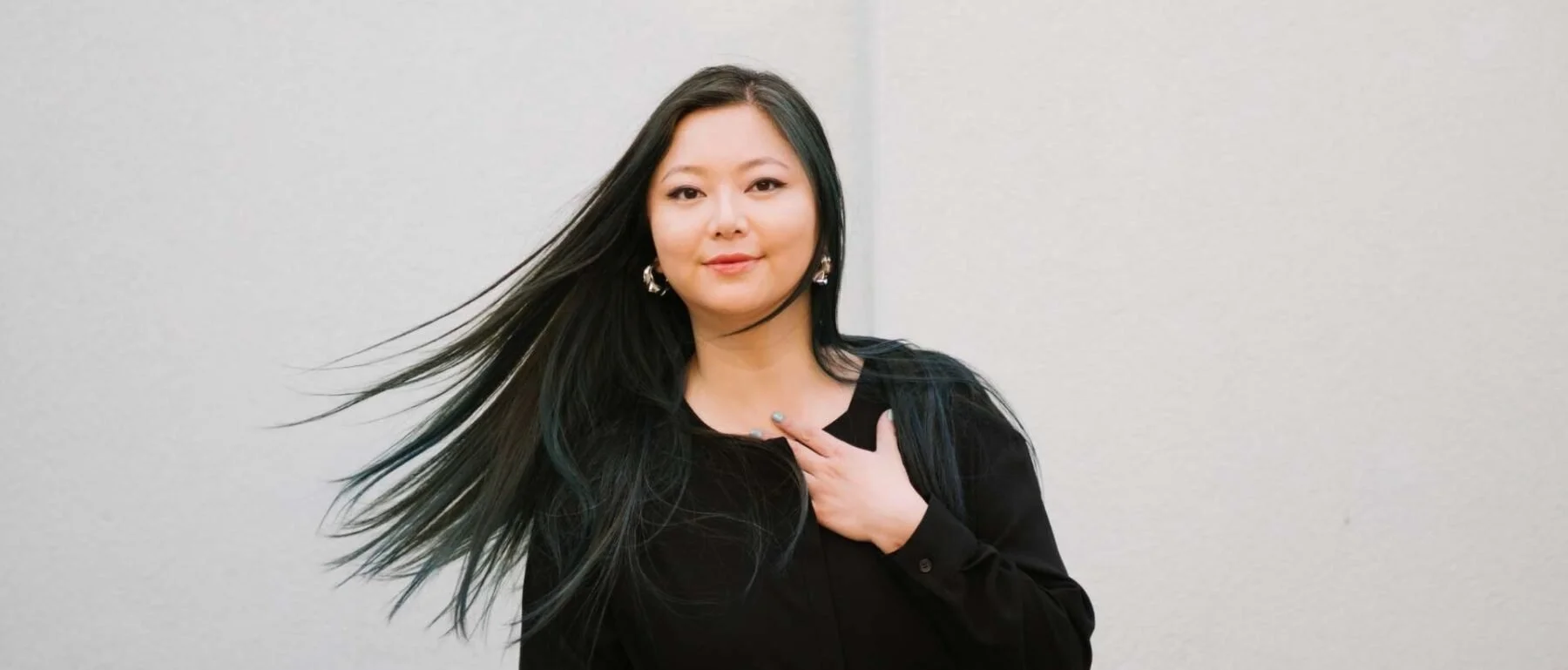Music review: Vicky Chow transfixes sold-out crowd with Book 2 of Philip Glass’s Études for solo piano
Concert marked another successful milestone in the pianist’s longstanding relationship with Music on Main
Vicky Chow.
MUSIC ON MAIN put up a musical bat signal and Vancouverites responded, packing Christ Church Cathedral to capacity Tuesday night for the return of Vicky Chow, who took on Book 2 of Philip Glass’s Études for solo piano (the Vancouver-born pianist performed Book 1 just over a year ago).
The studies, originally begun by the composer to refine his own playing technique, have gone from cult following to mainstream embrace, and are now firmly entrenched into the piano repertoire. YouTube is replete with performances of the works in concert halls of all kinds, but Chow’s Vancouver concerts of the Études—both recorded for the Music on Main YouTube channel—so far appear to be the only ones taking place in a moodily-lit cathedral (or, for that matter, punctuated by the wail of ambulance and police sirens, an unavoidable auditory hazard of the venue).
Every performer of the works brings their own approach to them, and Chow’s attitude is summed up best by the word used by Music on Main’s artistic director David Pay to describe the performer: fearless. The artist dove into the 10 pieces with bravado and tenacity, aided by an impeccable sense of internal timing—you could have set a metronome to her pacing, though her playing was anything but metronomic.
Chow has described the studies in Book 2 as having “unpredictable twists and turns”, and she clearly relished delivering these—punching the dynamic and tonal contrasts of Étude 13, with its circus-like phrases and interrupting roaring left-hand lines. Étude 15 pushed turbulently forward through its repeated arpeggios and dotted rhythms, escalating in an astonishing chromatic flurry of descending and ascending sixteenths, which Chow delivered in a dramatic flourish. In Étude 17, she inserted jolting pauses between its contrasting sections, which move through various tempi, dynamics, and registers, heightening the tension.
The pieces were all, for lack of a better word, quintessentially “Glass”: there was the familiar shifting between major and minor chords; the repeating arpeggios; the hypnotic, rhythmical juxtaposing of duple, triple, and quadruple meters. Even so, each work had its own particular charm and attitude—bombastic, inquisitive, forceful, or even romantic.
Chow navigated them all with technical ease and delight, transfixing the audience for the hour-long performance. Without being instructed to, they held their applause until the last note of the impressionist and delicate Étude 20, with its closing tintinnabulations, died away.
Despite a standing ovation and a couple of curtain calls, Chow declined an encore. Those wishing for more will just have to wait for the concert’s arrival on YouTube to relive the experience—or for the next bat signal.
![]()













